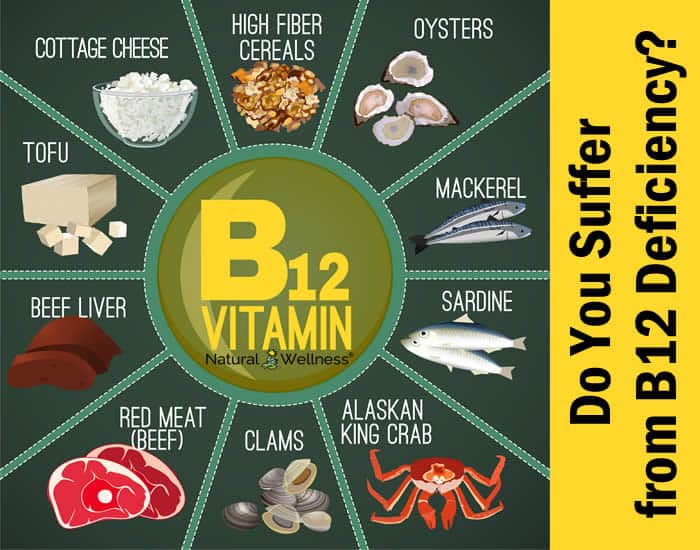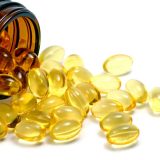

It’s a funny little vitamin with a funny little name. B12 sounds like the last item on a marketing flow chart, or maybe the worst spy on a secret government task force. In actuality, B12 helps your body perform several essential functions. Without it, you couldn’t make DNA, healthy blood, or nerve cells. And since you need those to live, this funny little vitamin plays a seriously major role in your health.
Your body can’t make B12 on its own, so it needs to get it from outside sources. Normally, this isn’t difficult. Your average adult only needs 2.4 micrograms (mcg) of B12 per day. If your diet includes eggs, animal protein, and/or dairy, you’ve probably got all the B12 you need. However, certain medical conditions can reduce our ability to absorb this vitamin, such as Crohn’s disease, celiac disease, and simply aging.
An otherwise healthy person may also develop B12 deficiency, so learning to recognize its symptoms is invaluable to your future well-being.
Signs of B12 Deficiency
Has the pep drained from your step? According to Lisa Cimperman, RD, a spokesperson for the Academy of Nutrition and Dietetics, “Fatigue is one of the first signs of B12 deficiency.” B12 helps your body make red blood cells, and these cells carry oxygen to your organs. When you don’t have enough of it, you feel weak and tired.
Weakness is another symptom of B12 deficiency, as is dizziness and unsteadiness on one’s feet. Feelings of depression and anxiety are also common, as is mental fog. “I’ve seen this deficiency mistaken for Alzheimer’s in elderly patients,” Cimperman says. “But once they have a blood test and it reveals a B12 deficiency, they start taking a supplement and their symptoms start to fade.”
Two of the stranger symptoms of B12 deficiency include tingling and tastelessness. Sufferers have reported a “pins and needles” sensation, like when a limb falls asleep. This is due to nerve damage, and can become permanent if action isn’t taken. Your food may taste blander due to a loss of papillae (the bumps on your tongue). Roughly half of patients suffering B12 deficiency lose papillae, most of which contain your taste buds. Weight loss can become a tertiary symptom of the deficiency, because your food no longer tastes good.
Blurry vision or loss of vision can also occur. Like that “pins and needles” feeling, this is due to nerve damage – specifically, the optic nerve. In extreme cases, vision loss is possible.
How to Treat B12 Deficiency
Getting more B12 into your system may be as simple as changing your diet. Vegetables, fruits, and grains contain very little of this vitamin, making vegetarians – and vegans in particular – more vulnerable. For these individuals, adding B12-fortified items to their menu, or taking natural B12 supplements, is highly recommended.
For those who eat dairy and meat, the options are much broader:
- One cup of skim milk contains 1.3 mcg of B12.
- One cup of cottage cheese can contain up to 1.5 mcg. That’s more than half the average daily requirement.
- You can get your full serving of daily B12 in just 2.5 oz of cooked ground beef.
- The same amount of tuna, raw or cooked, contains up to 9.3 mcg of B12.
Even more great options for foods fortified with B12 include high fiber cereals, oysters, mackerel, sardines, Alaskan king crab, clams, beef liver, and tufu.
Unfortunately, not everyone can change their diet, and there may be other factors working against you. Lack of B12 absorption is 10 to 30 percent higher in elderly individuals. This is one of several reasons why doctors recommend multi-vitamins. If you’ve had an operation to shrink the size of your stomach, or take medication that reduces stomach acid, your absorption is also likely to suffer. Those with atrophic gastritis, pernicious anemia, Graves’ disease and lupus, are also likely candidates for B12 deficiency.
If you’re worried about B12 deficiency, contact your doctor. After assessing your symptoms, they can run several blood tests to check hemoglobin levels, folate, and the size of your red blood cells.




